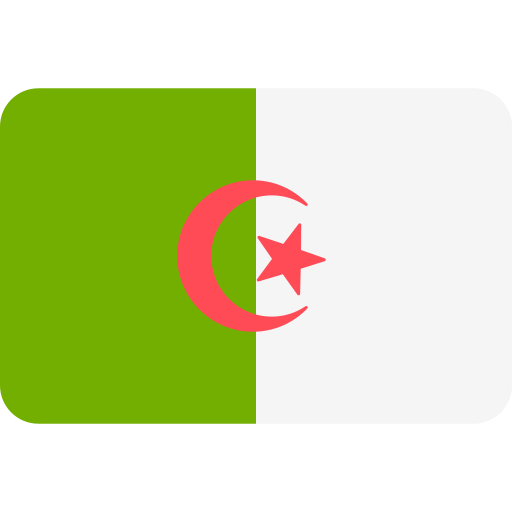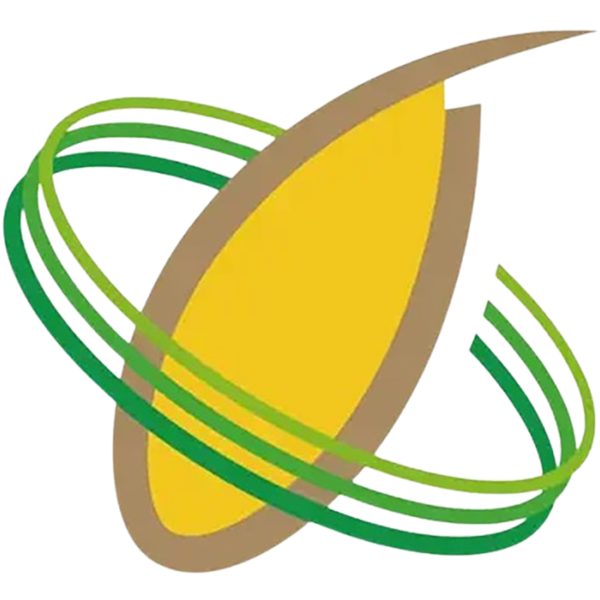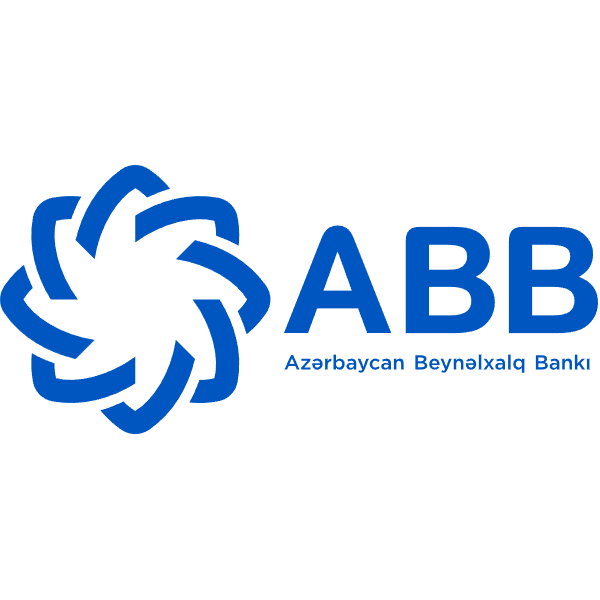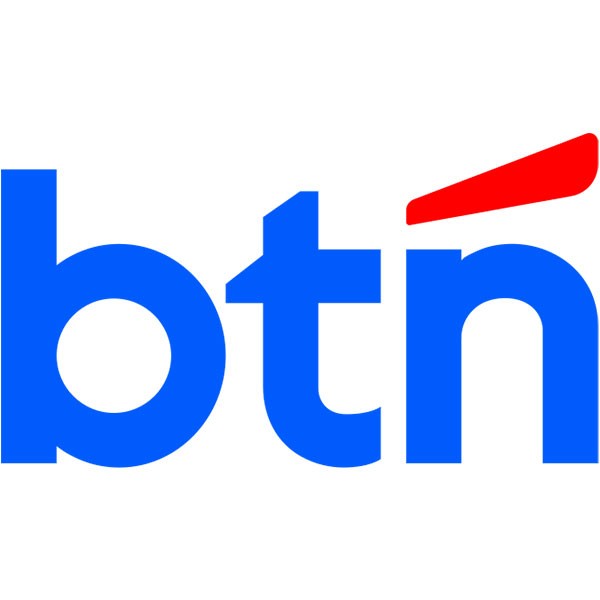basic information
of the bankBanque d'Algérie, Chinese translated as Bank of Algeria, is the central bank of Algeria, which is responsible for maintaining the country's monetary stability and the health of the financial system. It is a fully state-owned institution, not a commercial bank, but the maker and executor of the country's monetary policy. Its role is more like that of a "financial commander" than a direct-to-customer commercial bank, so its clients are mainly governments, commercial banks, and other financial institutions.
name and backgroundFull
name: Banque d'Algérie (Bank of Algeria)
Founded: December 13, 1962, after the independence of Algeria, it was established by the Constituent Assembly by a bill to take over the functions of the Banque de l'Algérie, the central bank of the French colonial period.
Head office: Algiers, 38, Avenue Franklin Roosevelt, Sidi M'Hamed, Alger 16000.
Shareholder background: 100% state-owned, wholly owned by the Algerian government, unlisted, as its public function as a central bank dictates that it does not require capital market financing.
Backstory: Banque d'Algérie was born in the turbulent years of Algeria's liberation from French colonial rule, and its first president, Seghir Mostefai, played a key role in independence negotiations. Its establishment marked the country's control of monetary sovereignty and remains the "ballast stone" of Algeria's economic stability to this day.
Coverage area
: Mainly serving Algeria, as a central bank, it does not directly target retail customers, but covers the national financial system through regulation and policy development. Indirectly affects the world, as it manages Algeria's balance of payments and foreign exchange reserves, and interacts frequently with institutions such as the International Monetary Fund (IMF).
Number of offline outlets: Banque d'Algérie, as a central bank, does not have a retail outlet for the general public, operating mainly through its headquarters and regional offices in Algiers.
ATM distribution: ATMs are not directly operated, but indirectly influence the layout of the national ATM network by supervising commercial banks, such as the Banque Nationale d'Algérie. ATMs in Algeria are mainly provided by commercial banks and postal services such as Algérie Poste, and there are about several thousand of them throughout the country, but they are unevenly distributed, with higher coverage in urban areas than in rural areas.
supervisory and compliance
regulator: Banque d'Algérie is itself the supreme regulator of the Algerian financial system, through its Monetary and Credit Commission (Conseil de la Monnaie et du Crédit) and the Banking Commission (Commission). Bancaire) sets rules, approves banking licenses, and oversees compliance.
Deposit Insurance Scheme: Algeria has a deposit insurance mechanism, which is managed by the Deposit Guarantee Fund (Fonds de Garantie des Dépôts Bancaires), which is regulated by the Banque d'Algérie. The Instruction n°01-2024 issued in January 2024 clarifies the percentage of premiums that commercial banks are required to pay to ensure the safety of depositors' funds.
Recent compliance record: Banque d'Algérie has strengthened its foreign exchange controls and anti-money laundering regulations in recent years. For example, in October 2024, the regulations on the declaration of foreign exchange imports and exports (Règlement n° 24-05) were revised. It is also actively involved in international compliance, working with the IMF and the African Export-Import Bank (Afreximbank) to ensure compliance with global financial standards.
financial healthAs
a central bank, Banque d'Algérie's financial health is more reflected in the country's economic stability and monetary policy effectiveness, rather than in the indicators of traditional commercial banks.
Capital adequacy ratio: N/A, the central bank is not required to comply with the capital requirements of commercial banks, and its "capital" is essentially a credit endorsement of the state.
Non-performing loan ratio: It does not directly hold a loan portfolio, but pays attention to the problem of non-performing loans through regulatory commercial banks. The overall non-performing loan ratio of the Algerian banking sector has declined in recent years, to around 4%-5%, thanks to strict supervision by the Banque d'Algérie.
Liquidity Coverage Ratio: Again, not directly applicable, but Banque d'Algérie ensures system liquidity by setting liquidity requirements for commercial banks (e.g. Règlement N°24-02 of February 2024). The Algerian banking system as a whole is more liquid, thanks to oil export earnings and foreign exchange reserves (about $60 billion, 2024 data).
Quick Verdict: Banque d'Algérie's financial health is closely linked to the Algerian economy, and the current monolithic economic structure that relies on oil revenues is a potential risk, but its status as a central bank ensures a high level of stability.
deposit and loan products
Deposits: Banque d'Algérie does not directly offer retail deposit products, but rather influences the deposit rates of commercial banks by setting interest rate policies such as benchmark rates. Currently, Algeria has a low interest rate on demand deposits (about 0.5%-1%), time deposits (3 months to 1 year) between 2% and 3.5%, and high-yield savings accounts and large certificates of deposit provided by commercial banks (e.g. BNA, CNEP) with interest rates of up to 4%.
Loans: Loans are not issued directly, but market interest rates such as housing loans and car loans are affected through monetary policy and refinancing tools. The interest rate on housing loans in Algeria is usually 5%-7%, car loans are about 6%-8%, and personal credit loans can reach 8%-10% due to their higher risk. Flexible repayment options are offered by commercial banks, with Banque d'Algérie setting only the general guiding framework.
Features: As a central bank, it pays more attention to macroeconomic control than specific product design. The recent push for digital payments has indirectly promoted commercial banks to launch innovative savings and loan products.
List of common feesAccount
management fees, transfer fees, etc.: Banque d'Algérie does not charge customers directly, but indirectly through the supervision of the fee structure of commercial banks. The monthly account fee for Algerian commercial banks is usually 0-500 Algerian dinars (about 0-3.5 USD), domestic transfers are free or as low as 50 dinars, and cross-border transfers are higher (about 1%-2%).
Overdraft fee, ATM inter-bank withdrawal fee: set by commercial banks, the inter-bank withdrawal fee is about 100-200 dinars, and the overdraft fee varies from bank to bank, usually 1%-2% of the overdraft amount.
Hidden fee warning: Banque d'Algérie requires banks to disclose fee information such as minimum balance requirements, but some commercial banks may still set hidden thresholds on small accounts, and users are advised to read the terms of the contract carefully.
digital service experience
App & Online Banking: Banque d'Algérie does not provide apps or online banking services for the general public, but actively promotes the development of a national digital payment system. For example, in October 2024, Governor Salah Eddine Taleb emphasized the importance of digital payments at the "Cashless Future" conference. The app user rating of commercial banks (such as BNA) is about 3.5-4 stars on Google Play and App Store, and the features include money transfers, bill payments, etc.
Technological innovation: It does not directly develop AI customer service or open banking APIs, but supports commercial banks to introduce technologies such as face recognition and real-time transfer through regulation. Recently, SATIM (Algerian ATM and POS network operator) has been upgraded to support QR code payments and mobile payments (e.g. Wimpay-BNA).
Evaluation: Banque d'Algérie plays the role of "behind the scenes" in digital transformation, and the actual experience depends on the execution of commercial banks, and the overall level of digitalization is medium but growing rapidly.
Customer Service Quality
Service Channel: Banque d'Algérie does not provide direct customer service to the public, but rather ensures that commercial banks provide 24/7 telephone support and online chat through regulation. Social media (e.g., Twitter accounts@bankofalgeria) are more responsive and usually respond within 24 hours.
Complaint handling: The central bank mainly deals with systemic complaints, and specific complaints are resolved by commercial banks. The Algerian banking sector has a low complaint rate, with an average resolution time of about 3-7 days, and moderately high user satisfaction.
Multi-language support: The official languages are Arabic and French, and some commercial banks provide English services, and cross-border users can get support through the international department.
security measuresFunds
are safe: Deposit insurance is provided by the Deposit Guarantee Fund and covers a certain amount per depositor (the exact limit is not disclosed, estimated at about 100,000 dinars). Banque d'Algérie requires commercial banks to implement real-time transaction monitoring and anti-fraud technology.
Data security: There is no publicly available information that Banque d'Algérie is ISO 27001 certified, but the banks it regulates are subject to strict data protection regulations. No major data breaches have been reported in recent years.
Evaluation: Funding and data security measures are robust, but transparency needs to be improved.
Featured Services and Differentiated
Market Segments: Banque d'Algérie does not directly offer student accounts or financial management for the elderly, but has adopted policies to encourage commercial banks to launch green financial products (such as loans to support renewable energy) and ESG investments.
High-net-worth services: There are no private banking services, and high-end wealth management is provided by commercial banks such as Société Générale Algérie.
Features: As a central bank, it is more focused on financial inclusion and sustainable development, and recently promoted a digital bank license (Instruction n°02-25, March 2025), paving the way for new players to enter the market.
Market Position and
HonorsIndustry Ranking: Banque d'Algérie, as a central bank, does not participate in the ranking of commercial banks in terms of asset size, but has a prominent position among African central banks and has a great influence due to Algeria's oil economy.
Awards: There are no specific awards for "Best Digital Bank", but its president, Salah Eddine Taleb, has been recognized by the industry for promoting digital payments and international collaborations, such as with Afreximbank.
Summary: Banque d'Algérie is the pinnacle of the Algerian financial system, known for its robustness and authority, for those who are concerned about macroeconomic stability rather than retail customers looking for personalized service.













